MercoPress. South Atlantic News Agency
Economy
-
Saturday, May 7th 2022 - 10:44 UTC
Booming beef industry and exports for Brazilian company

One of the largest beef companies in the world with operations in several continents presented its financial results for the first quarter of 2022. Brazil's Marfrig net revenue was 22.3 billion reais, up 29.6% year-on-year. Adjusted Ebitda reached 2.7 billion reais in 1Q22, up 60.9%, and the adjusted Ebitda margin was 12.3%.
-
Saturday, May 7th 2022 - 10:27 UTC
Bolsonaro makes trip to Guyana to expand business opportunities
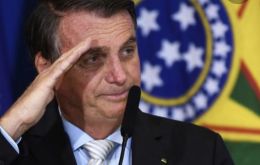
Brazilian President Jair Bolsonaro and his Guyana counterpart Mohamed Irfaan Ali signed a series of cooperation agreements on mutual legal assistance in civil and criminal matters in Georgetown.
-
Saturday, May 7th 2022 - 09:51 UTC
Hungary, Slovakia, Czech Republic exempt from joining EU embargo on Russian oil imports

The European Union is set to give some member states heavily dependent on Russian oil – such as Hungary and Slovakia – time until the end of 2024 to comply with the proposed embargo on oil imports from Russia, as the bloc is looking to keep a united front against Putin and his invasion of Ukraine, reported Bloomberg on Friday.
-
Saturday, May 7th 2022 - 09:22 UTC
World food commodity prices decreased slightly in April, FAO report

World food commodity prices decreased in April after a large jump the previous month, led by modest declines in the prices of vegetable oils and cereals, the Food and Agriculture Organization of the United Nations (FAO) reported.
-
Friday, May 6th 2022 - 10:57 UTC
Cafiero outlines Argentine foreign policy priorities, trade, Malvinas and Mercosur
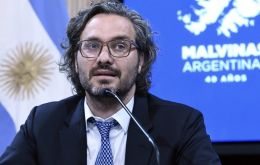
The main challenge of Argentine foreign policy is to reinstall the necessary tools to recover the trade dynamics that enable the country to recover from the pandemic's economic downfall, plus making it attractive to foreign investors, said Foreign minister Santiago Cafiero summoned by the Senate Foreign Relations Committee.
-
Friday, May 6th 2022 - 10:55 UTC
EU Ambassador to Uruguay on trade agreement with Mercosur: “It is something that European citizens are asking their governments for”
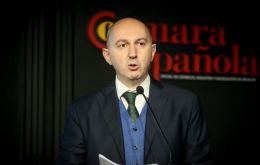
The ambassador of the European Union (EU) in Uruguay, Paolo Berizzi, said he was “optimistic” about the agreement between the bloc he represents and Mercosur. After more than 20 years of negotiations, Berizzi said he believes that this year there will be progress for its entry into force.
-
Friday, May 6th 2022 - 09:49 UTC
Despite record profits, Maersk warns of stagflation and Chinese factory closures
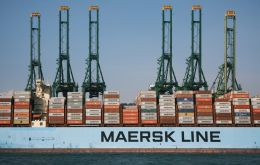
Møller-Maersk has warned of growing economic risks including potential stagflation and Chinese factory closures even as the world’s largest container shipping group by profits reported a record quarter.
-
Friday, May 6th 2022 - 09:45 UTC
Chile's base rate increased 125 points to 8,25%, highest since September 2008

Private estimates fell short in Chile on Thursday when the Central Bank monetary policy desk announced an increase in the base rate of 125 points, to 8,25%, the highest since September 2008 in an effort to contain the strong sustained inflation. According to the bank's chair, Rosanna Costa the monetary policy desk decision was unanimous.
-
Friday, May 6th 2022 - 09:18 UTC
Brazil hikes interest rate to its highest in five years, 12,75%, to fight double digit inflation
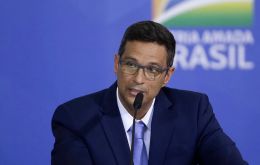
As anticipated Brazil's central bank, in a unanimous decision, raised interest rates by 1% to 12,75%, the highest in five years, to contain double digit inflation. However policymakers suggested their tenth straight rate increase would not be the last in what has been one of the world’s most aggressive ongoing rate hike cycles.
-
Friday, May 6th 2022 - 09:09 UTC
Bank of England combats inflation by increasing base rate interest to 1%

The Bank of England on Thursday increased for the fourth consecutive time the base rate interest to 1% in an attempt to contain inflation and despite admitting the prospect of recession. The energy crunch, the Russian war in Ukraine, and lesser household incomes are expected to contribute to weaker growth.
